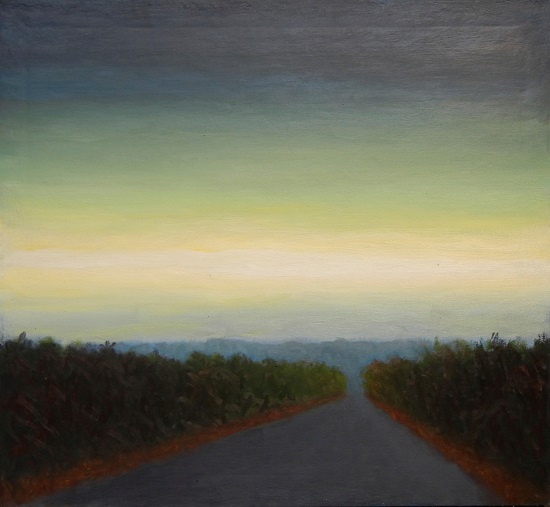
'Botanical archaeology'
"Highway Into the Void'' (oil on canvas), by PETER WATTS, in his June 20-July 6 show at the Berta Walker Gallery, Provincetown.
The blurb for his show says that "he is always aware of the history of human touch that nature quickly covers over.'' The gallery calls his approach "botanical archeology.''
It said that Mr. Watts, who lives in Wellfleet, "sometimes paints houses based on his knowledge of local history coupled with discoveries like a long-abandoned cellar hole....A stand of pines on top of a knoll is a former pasture returned to seed, surrounded by the oak forests that will one day conquer it.''
Of course, much of New England, especially mostly densely populated southern New England, was once farmland. Despite the overall increase in the region's population, much of it has gone back to scrub or woods, leaving layers of ghosts.
The rise of "locavore'' agriculture, whose products are targeted at affluent suburbanites and urbanites, seems unlikely to return much of this land to open farmland, as popular as those farmers' markets, heavy laden with "organic'' produce, seem to be.
Through all this are what Mr. Watts sees as "nature's changing patterns and the patterns that repeat themselves.'' He said he used to be "more interested in the landscape itself. Now I look at how an abstract element of a landscape feels.''
This reminds me (Robert Whitcomb) of Alan Weisman's eerie coffee-table book The World Without Us, a nonfiction book about what the human-built environment might look like when humans disappear.
